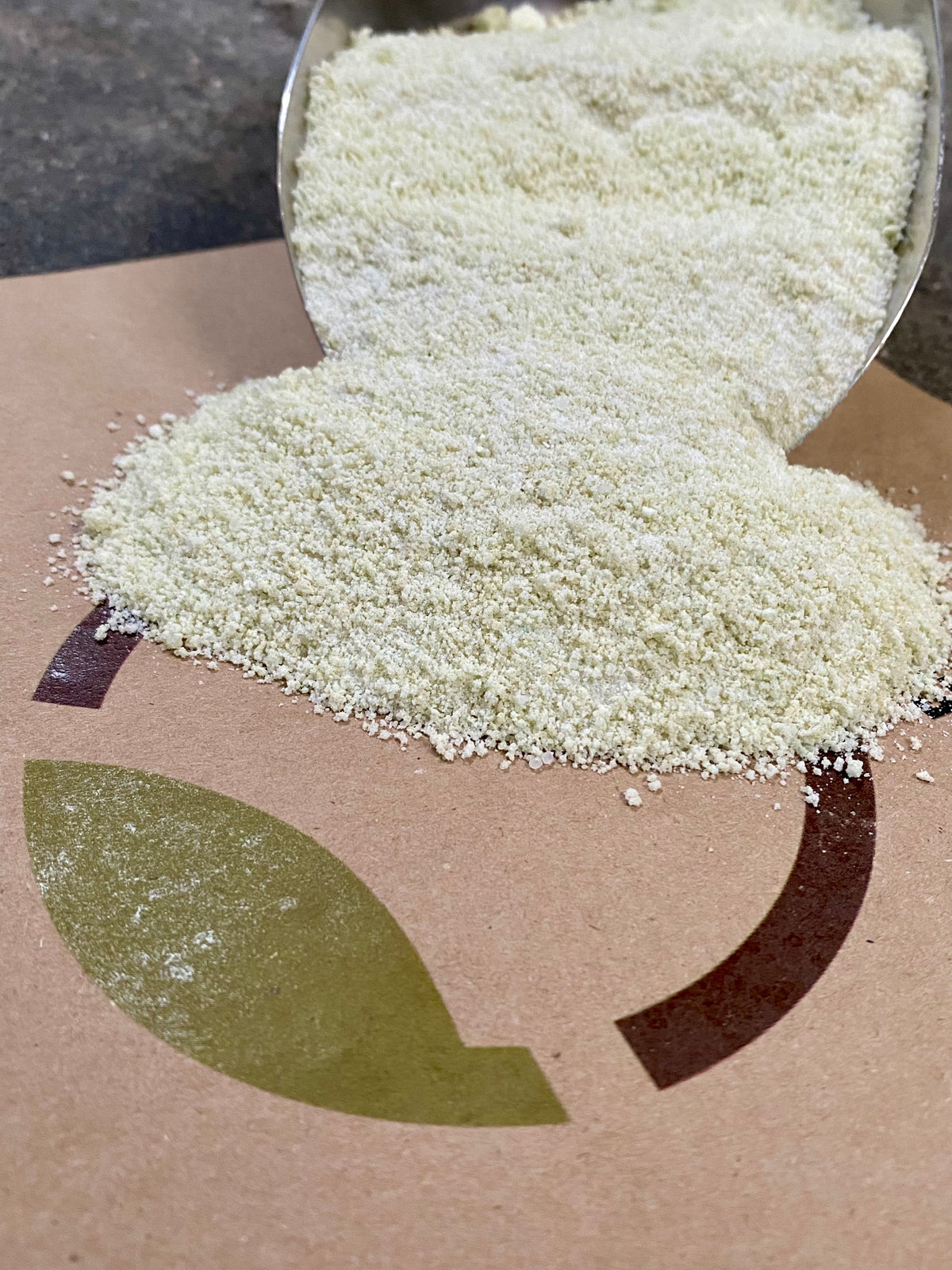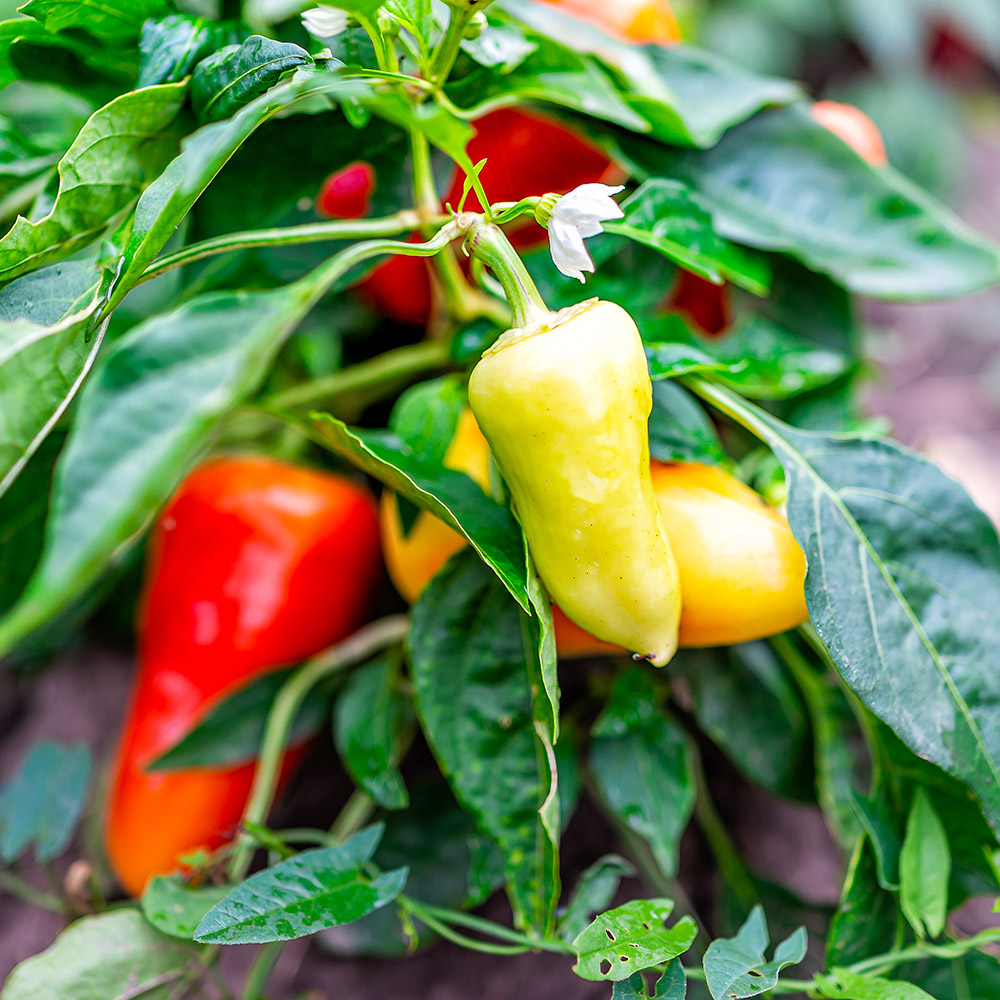Organic Vs. Synthetic Fertilizers: Which Is Best for Nurturing Healthy Pepper Plants?
In the world of nurturing healthy pepper plants, the choice between synthetic and natural plant foods stands as a critical choice with far-reaching effects. While both options objective to give vital nutrients to sustain plant development, the subtleties of their influence on the soil, plant wellness, and the environment spark a debate that mirrors throughout the gardening neighborhood. Comprehending the distinct benefits and prospective pitfalls of each plant food type is essential for pepper growers looking for to enhance their yields while preserving an eco-conscious and lasting method.
Advantages of Organic Fertilizers
Organic fertilizers use an environmentally-friendly and lasting method to beneficial pepper plants, offering important nutrients without the usage of synthetic chemicals. These all-natural fertilizers are stemmed from organic resources such as compost, manure, bone dish, and seaweed, promoting dirt health and biodiversity. Unlike artificial fertilizers, natural choices launch nutrients slowly, guaranteeing a steady and well balanced supply for pepper plants to prosper.
One considerable advantage of organic plant foods is their capability to boost soil framework and water retention. By boosting soil health and wellness, organic plant foods promote advantageous microbial task, which aids in nutrient uptake by pepper plants. In addition, natural fertilizers lower the danger of chemical run-off, safeguarding water resources from contamination and protecting the setting.
Additionally, natural fertilizers add to long-lasting soil fertility by advertising the growth of beneficial soil organisms. These microorganisms assist break down organic issue, releasing nutrients in a type that is easily obtainable to pepper plants. best fertilizers for peppers. By promoting a healthy and balanced soil ecosystem, natural fertilizers support lasting pepper growing techniques that profit both plants and the atmosphere
Drawbacks of Artificial Fertilizers
Artificial plant foods, in comparison to their natural counterparts, position different negative aspects when used to nourish pepper plants, affecting both plant health and wellness and environmental sustainability. One major disadvantage of artificial fertilizers is their tendency to leach nutrients from the dirt promptly.
In addition, the overuse of synthetic fertilizers can add to water pollution. Excess fertilizers not soaked up by plants can wash away right into water bodies, bring about eutrophication, where algae flowers deplete oxygen degrees in the water, hurting water life. Synthetic plant foods are commonly derived from non-renewable sources, such as fossil gas, contributing to carbon exhausts and environmental destruction during their manufacturing.
Nutrient Absorption Comparison
Reliable nutrient absorption plays a vital role in the total health and growth of pepper plants. When contrasting organic and artificial plant foods in terms of nutrient absorption, natural fertilizers have the benefit of offering an extra balanced and slow-release resource of nutrients (best fertilizers for peppers). Organic fertilizers have a range of macro and trace elements that are not only useful for the plants but likewise advertise healthy dirt microbial task, which aids in nutrient uptake. On the other hand, artificial fertilizers typically offer a quick launch of nutrients, which can bring about seeping and drainage, resulting in lower nutrient absorption rates by the plants.
Moreover, natural fertilizers improve dirt framework and water retention capability, permitting pepper plants to gain access have a peek at these guys to nutrients a lot more efficiently. This enhanced dirt quality helps with origin advancement, enabling far better nutrient absorption. Artificial plant foods, although originally increasing plant development because of their high nutrient concentrations, may prevent long-lasting nutrient absorption by degrading dirt wellness over time.
Ecological Impact Factors To Consider

On the various other hand, artificial plant foods, although often more concentrated and instantly readily available to plants, can have damaging impacts on the atmosphere otherwise used appropriately (best fertilizers for he said peppers). Their manufacturing calls for high power inputs, leading to greenhouse gas discharges and adding to environment change. The drainage of excess synthetic plant foods can contaminate water sources, leading to eutrophication and damaging aquatic environments.
Finest Plant Food Practices for Peppers
When fertilizing pepper plants, enhancing nutrient uptake and lessening environmental effect are crucial factors to consider. To achieve this, it is necessary to adhere to best fertilizer methods customized to the specific needs of pepper plants. One important technique is to perform a soil examination prior to using any fertilizers. This test can figure out the pH degree of the dirt and recognize any nutrient shortages, leading you in selecting the most suitable fertilizer formulation.
One more important technique is to fertilize pepper plants at the right time. Normally, peppers profit from receiving plant food at growing and afterwards once again when they begin to flower. Over-fertilizing can bring about nutrient inequalities and harm the plants, so it is crucial to follow advised application prices.
Additionally, picking a well balanced plant food with an NPK proportion that fits pepper plants' demands is essential. Inevitably, incorporating synthetic and organic fertilizers deliberately can help support healthy and balanced pepper plants while lessening ecological impact.
Conclusion

Organic fertilizers offer a sustainable and environmentally-friendly approach to nourishing pepper plants, visit our website providing necessary nutrients without the usage of synthetic chemicals. Unlike artificial fertilizers, organic choices release nutrients slowly, ensuring a consistent and balanced supply for pepper plants to grow.
Synthetic fertilizers, in contrast to their organic counterparts, posture various downsides when made use of to nourish pepper plants, influencing both plant health and ecological sustainability. When comparing synthetic and organic fertilizers in terms of nutrient absorption, organic fertilizers have the advantage of supplying a much more well balanced and slow-release resource of nutrients.Furthermore, organic fertilizers enhance soil structure and water retention capability, enabling pepper plants to gain access to nutrients a lot more successfully.